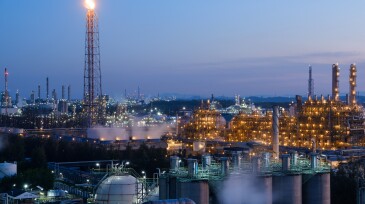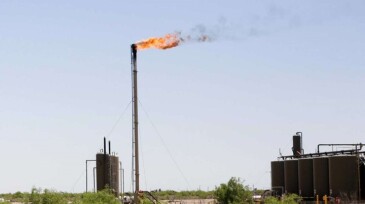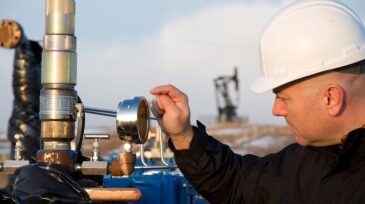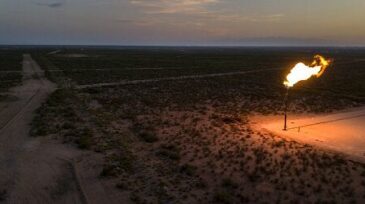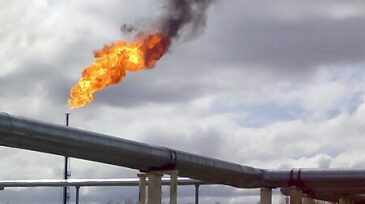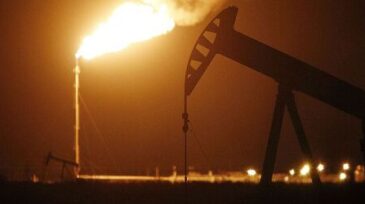flaring
-
Russian President Vladimir Putin has signed a new law regulating carbon dioxide emissions as the country strives to fulfill promises to significantly reduce its carbon footprint by 2030.
-
Iraq, which is second only to Russia in terms of gas flaring, is nearing an agreement with Total to implement dual-energy megaprojects to capture that gas and wean the country away from sanctioned Iranian gas and electricity imports. Solar power will play a major role.
-
A coalition of oil and gas trade groups says it aims to end routine flaring by 2030 as the Texas Railroad Commission indicates it will crack down on the practice.
-
The Texas oil and gas company will trim its carbon footprint in the coming years by building on a low-carbon investment that already totals more than $10 billion.
-
The practice of burning off natural gas is relatively rare in Colorado, but tough rules on flaring and venting may help the state meet greenhouse gas reduction goals.
-
Oil and gas producers in the state are being asked to submit data and economic analysis on why they cannot sell natural gas before they are granted permission to flare it.
-
Commissioners approved a revamped form that will be used by oil and gas operators to apply for an exception to flare gas during oil and gas operations. The form provides specific guidance on when an exception to flare would be permissible, under which circumstances, and for how long.
-
Two of Europe’s biggest oil companies urged Texas regulators to end the routine flaring of natural gas, joining with large investors who want greater oversight of the harmful environmental practice.
-
OGCI Launches $1 Million Partnership With Payne Institute To Develop Web Platform To Map Gas FlaringThe Oil and Gas Climate Initiative has announced a technical and financial sponsorship commitment of nearly $1 million to the Payne Institute for Public Policy at Colorado School of Mines to develop a transparent web platform to support real-time mapping and tracking of global gas flaring data.
-
The Texas Railroad Commission’s chairman has said the commission will look into policies to “drastically reduce” natural gas flaring from the state’s shale patch as investors become increasingly sensitive to climate-change concerns.

